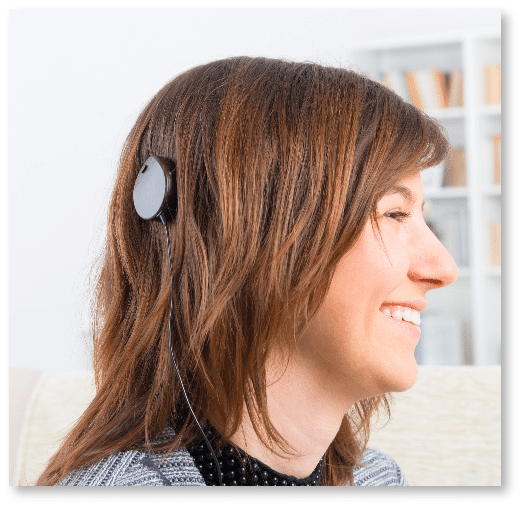
Cochlear Implants
Cochlear implants are surgically implanted devices designed to help those with severe or profound hearing loss but who have a good cochlea. While hearing aids are the most common solution for people with hearing loss, some people receive better results from a cochlear implant.
If you’re an adult with moderate to profound hearing loss in both ears and are not receiving enough benefit from hearing aids, you may be a candidate for a cochlear implant. An audiologist can help determine your candidacy and provide you with additional information.
How Does a Cochlear Implant Work?
The cochlear implant bypasses the damaged portions of the inner ear and directly stimulates the auditory nerve. Then, signals generated by the implant are sent up the auditory nerve to the brain, which recognizes the signals as sound.
There are two parts to the cochlear implant, the internal portion which is composed of the electrodes and receiver, and the external portion which is called the transmitter (or processor). The internal receiver takes the coded electrical signals from the external transmitter and delivers them to the array of electrodes that have been surgically inserted in the cochlea.
Candidacy
An audiologist will determine your candidacy based on your audiometric findings. A diagnostic hearing test will be performed as well as specialized speech testing. Qualifications for a cochlear implant include:
- Individuals 12 months of age or older
- Moderate to profound sensorineural hearing loss in both ears
- Limited benefit from amplification defined by preoperative test scores of ≤ 50% sentence recognition in the ear to be implanted and ≤60% in the opposite ear or binaurally
At our hearing center, we are proud to be a part of Cochlear Americas, Cochlear Provider Network (CPN). An audiologist will:
- Determine candidacy identification & evaluation
- Educate the candidate and their family on the entire cochlear implant journey
- Refer to a CPN surgeon dedicated to hearing implants
- Initial activation programming
- Follow-up programming and auditory rehabilitation
- Support and education

